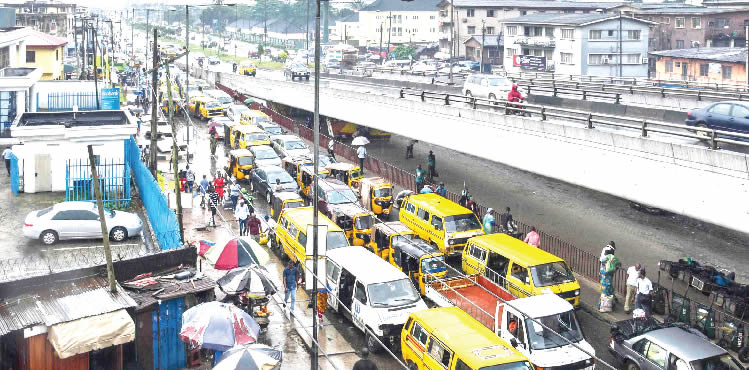Nigerian workers are facing significant financial pressure due to rising transport costs following a steep increase in fuel prices that has had a cascading effect on household budgets. Leaders of key labor organizations, such as Shehu Muhammed of the Association of Senior Civil Servants of Nigeria and Olusoji Oluwole of the Association of Senior Staff of Banks, Insurance and Financial Institutions, highlighted the urgency of the situation in a recent discussion with The PUNCH. The abrupt termination of the petrol subsidy by President Bola Tinubu during his inaugural address on May 29, 2023, has drastically raised petrol prices, with the cost of fuel jumping from N165 to N617 per liter in June and further escalating to between N865 and N1,300 per liter by early September. This sudden surge in fuel prices has exacerbated the already precarious financial situation for many workers, undermining the value of the newly introduced minimum wage of N70,000.
In this climate of economic challenge, Muhammed emphasized the critical need for the government to introduce supportive measures to alleviate the burden on workers. He argued that the focus should shift from merely celebrating the implementation of the minimum wage to ensuring that effective palliative measures are put in place to offset the impacts of the fuel price hike. He expressed concern that the welfare of civil servants is at risk, suggesting that immediate government intervention is vital to help workers navigate the current economic landscape. The situation is compounded by a general rise in the cost of living, which threatens to render the minimum wage less significant as inflation rates continue to climb.
The Association of Senior Staff of Banks, Insurance and Financial Institutions (ASSBIFI) also voiced its discontent, indicating that the government hastily executed the petrol price hike without adequate preparation for its economic consequences. For a government intent on implementing policies that could significantly affect its citizens, it is critical to create infrastructure and supportive measures that would help mitigate the financial aftermath. Workers are experiencing manifold increases in costs, including transportation, food prices, and utility charges. ASSBIFI underscored that rather than waiting in a reactive mode, the administration should have proactively provided a buffer through measures like transport subsidies, as seen in other countries facing similar dilemmas.
The challenges faced by workers in Nigeria are highlighted in alarming data from the National Bureau of Statistics, which reported that transportation inflation surged to 19.55 percent year-on-year in August. Insights from SBM Intelligence indicated that the proportion of monthly income allocated to commuting has more than doubled for many, rising from 20 percent to an astounding 50 percent for some workers since the fuel price increase. In a society where economic resources are limited, such a steep increase in transport expenditure is creating an increasingly untenable situation for employees, further exacerbating the problem of declining purchasing power.
Real-world examples of burdensome transportation costs underscore the gravity of the issue. Bidemi Ajayi, an accountant, reported that commuting expenses consumed more than half of his monthly salary, prompting thoughts of resignation due to the unsustainable nature of his earnings. Mrs. Adelakun Adelabu, a banker, revealed that her daily transportation costs had jumped from N3,000 to N6,000, showcasing the severe impact on her budget. Similarly, Opeyemi Adeola, a civil servant, lamented that transport costs now constituted almost 80 percent of his entire salary, rendering it impossible to save. Although the new minimum wage was introduced, Adeola found it largely irrelevant, as rising prices across the board devour any potential benefit it might have offered. He noted that a slight reduction in onsite working days had helped mitigate the transportation burden, but it remains a temporary relief in a broader crisis.
The growing disenchantment among the workforce has led both the Nigeria Labour Congress and the Trade Union Congress to echo calls for governmental intervention. Workers are advocating for subsidies, palliatives, or wage increases to bring some relief amid soaring transport costs that continue to diminish their purchasing power. Amid these escalating challenges, the broader societal impact on economic stability and worker satisfaction cannot be understated. With increasing living costs and stagnant wages, the Nigerian workforce faces a critical juncture where decisive and compassionate governmental action could alleviate pressure and restore hope for many struggling citizens in uncertain economic times.














